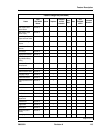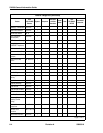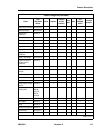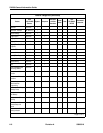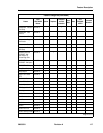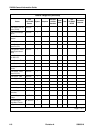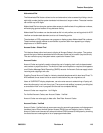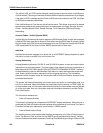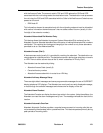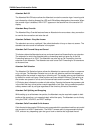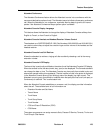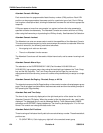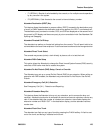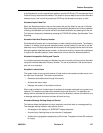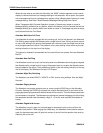
Feature Description
50003510 Revision A 121
with the Account Code. The account code’s COS and COR replace the COS and COR
associated with the trunk being used at the destination node. The destination node processes
the call using the COS and COR associated with the Caller’s Verified Account Code that was
passed on the trunk.
• PBX Node ID
This information element is associated only with the originating node and must be imbedded
with another information element because it has no access code of its own (usually it is the
first digit of the extension number).
Attendant Abbreviated Dial Number Entry
This feature allows the Attendant to program System Abbreviated Dial numbers from the
Attendant Console. Selected attendants have the option of making Abbreviated Dial numbers
confidential. This restricts the viewing and changing of the number to only those attendants
permitted to do so. See Abbreviated Dial.
Attendant Access (Dial 0)
A feature access code (usually 0) is provided for reaching the attendant. The destination can
change based on night/day service. The destination can be a device type other than a console
or LDN. There is also a second class of dial 0, which is described in Priority Dial 0.
The Attendant can be reached by dialing
• Attendant Access Code (usually 0)
• Console directory number
• Attendant Access code which is routed to an LDN key.
Attendant Advisory Message Setup
There are eight default messages and seven programmable messages for use on SUPERSET
display telephone LCD displays. The Attendant can read a set’s currently displayed message,
or read through the available messages and choose one for display on the set.
Attendant Alarm Readout
The Attendant Console can display the alarm logs active in the system. Using the softkeys, the
Attendant can read the alarm messages one by one. The message indicates the fault and its
location.
Attendant Automatic Overflow
Attendant Automatic Overflow provides a recorded announcement to incoming calls that are
not answered by the attendant within a predefined time. This feature operates primarily during
peak periods of incoming traffic.



